Graduates of the Nursing program celebrated their convocation as a win against COVID-19 even as they steeled themselves for the bigger fight ahead.
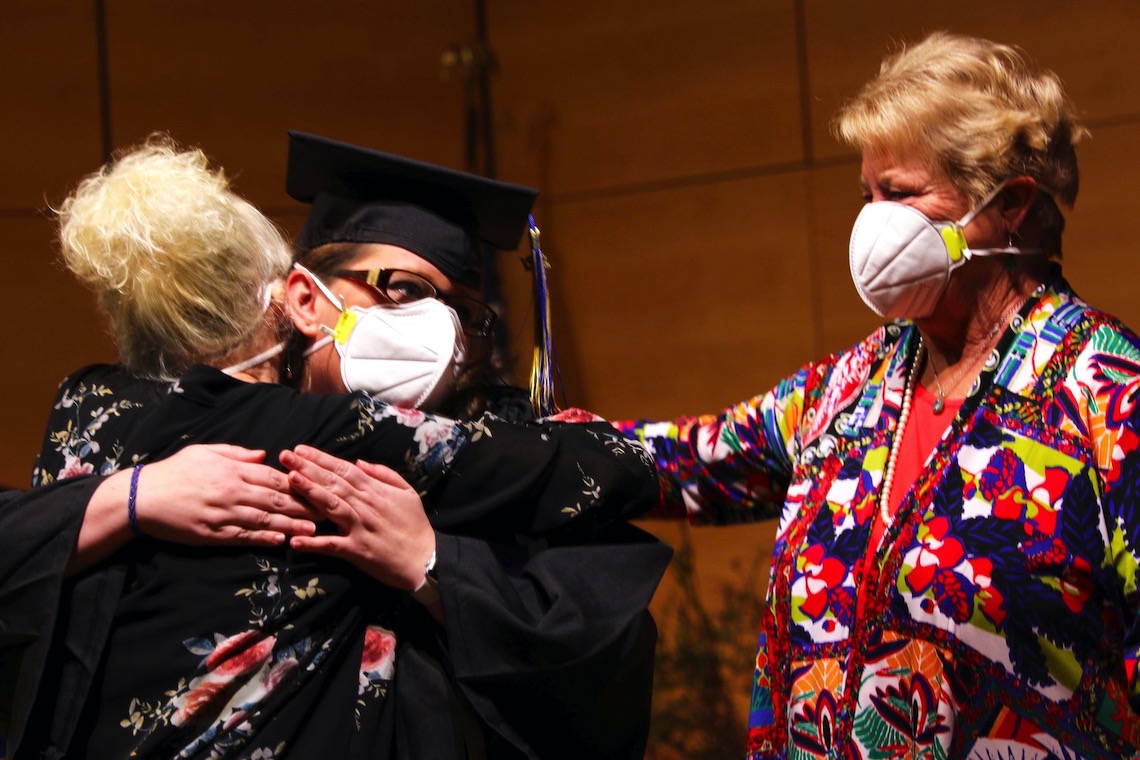
“Obviously, I’m a little bit nervous. Being a [pandemic-era] student, I’ve already faced a lot of challenges,” said Naimo Ukash. “We just keep getting stronger and stronger. I think we can handle anything that comes towards us, and that just says a lot about what nurses can do.”
Ukash’s class collectively received 40 bachelor’s degrees and nine master’s degrees at the ceremony on Friday, December 17. Every time a graduate crossed the stage to claim those coveted pieces of paper, the audience of parents, spouses, children, and friends at Abromson Community Education Center in Portland exploded with cheers.
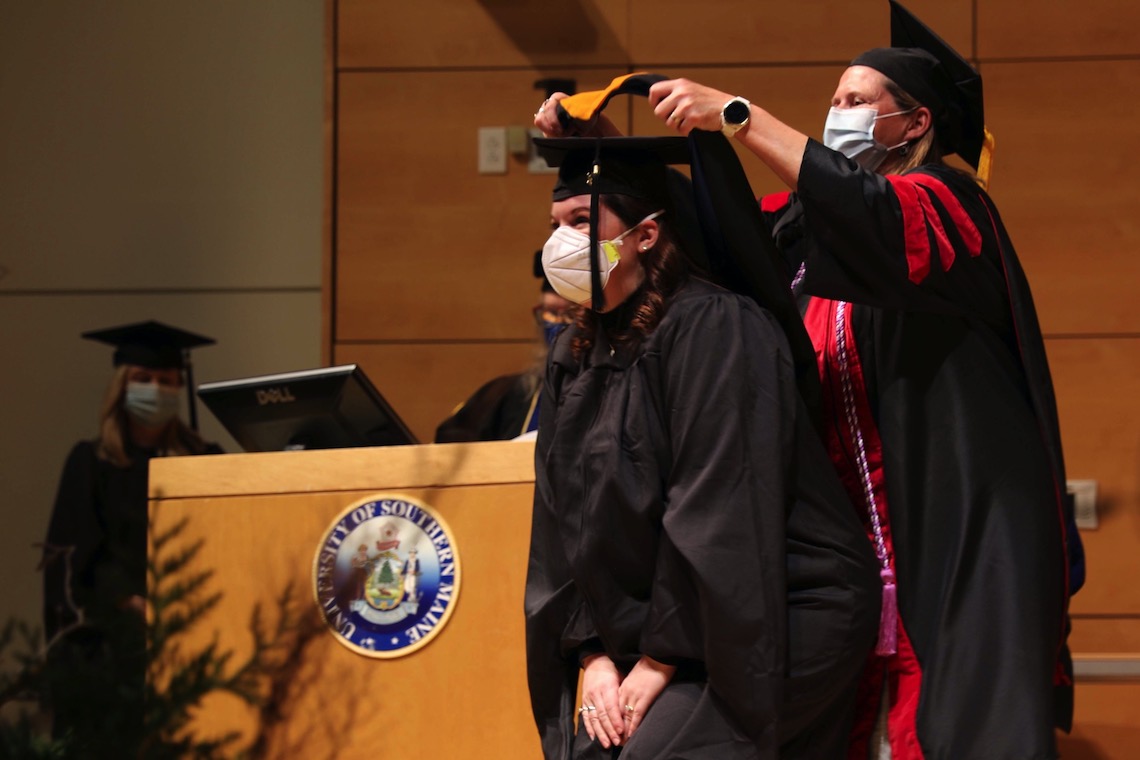
That kind of emotion hadn’t been seen in the auditorium for more than a year since the last in-person convocation in 2019. Public gatherings stopped the following year as the pandemic took root.
Dr. Brenda Petersen, Associate Dean of Nursing, spoke about the educational impact of those restrictions during her introductory remarks to graduates. Instruction needed to be reimagined as partner organizations began suspending clinical learning programs in March 2020.
In recalling that moment, Petersen said, “How can you educate a nurse online? We can, we will, and we did.”
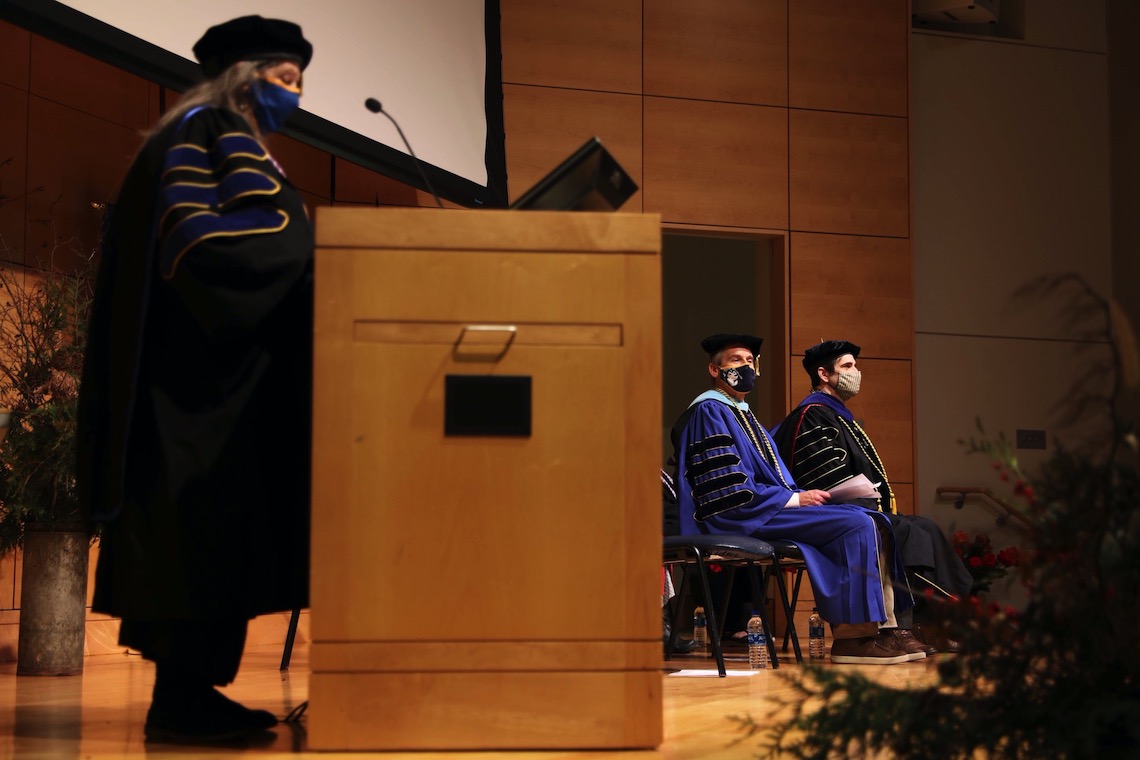
Adjusting to the new education paradigm didn’t always come easily. “I feel like a lot of the graduating class for this semester either fell behind or had to work their way ahead, and I’m no different,” said Joey LeClair. “It’s been a journey. A lot of difficult course work, a lot of time management skills that had to be worked on. But we made it.”
Their training allowed Nursing students to answer the call when health care providers across the state needed help administering the COVID-19 vaccines to as many people as possible. Thousands of patients benefited from their efforts.
The development of effective vaccines was a major factor in the University of Southern Maine’s decision to resume its convocation tradition, but not without precautions. Everyone in attendance was required to wear a high-quality mask. For those who came unprepared, N95 masks were available at the door. Ushers then led guests into the auditorium where seating was arranged with social distancing in mind.
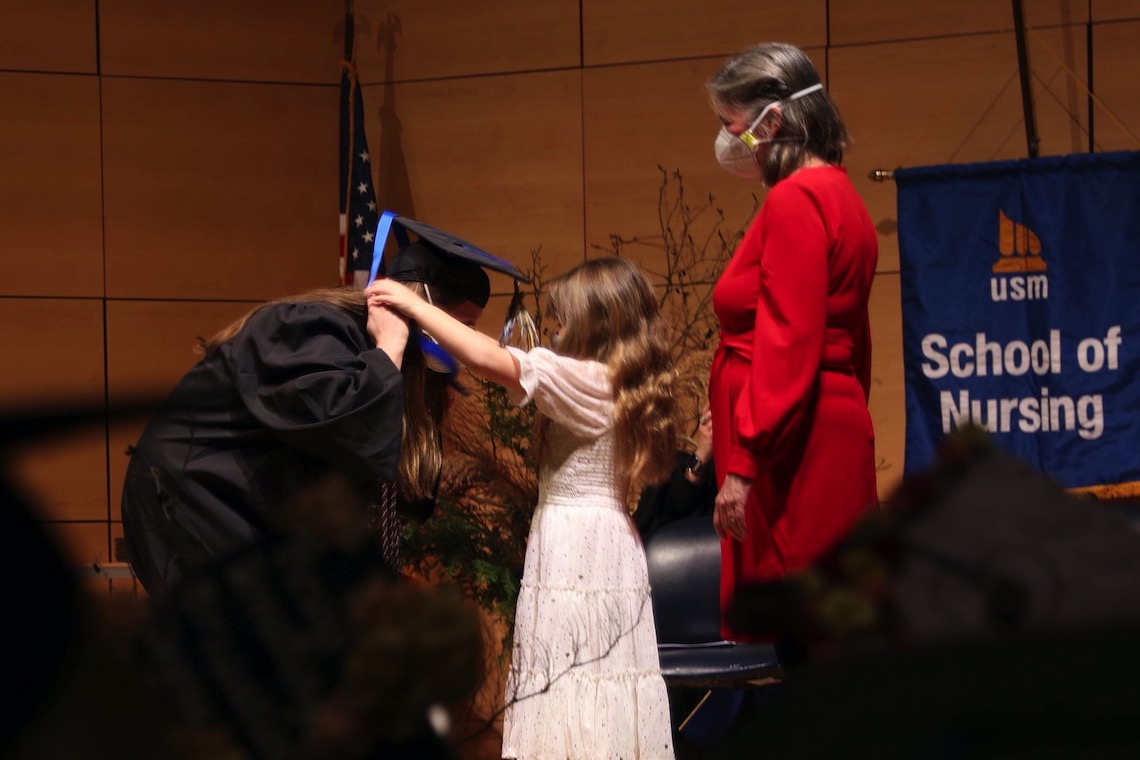
Select members of the audience left their seats to take part in a key moment on stage. Along with their bachelor’s degree, each graduate also received a pin from a person of their choosing. The presentation involved a hood for graduates receiving a master’s degree.
After a round of hugs and photographs, President Glenn Cummings waited his turn to send off each graduate with a congratulatory fist bump. “You make us proud because you believe in what you’re doing,” Cummings said.
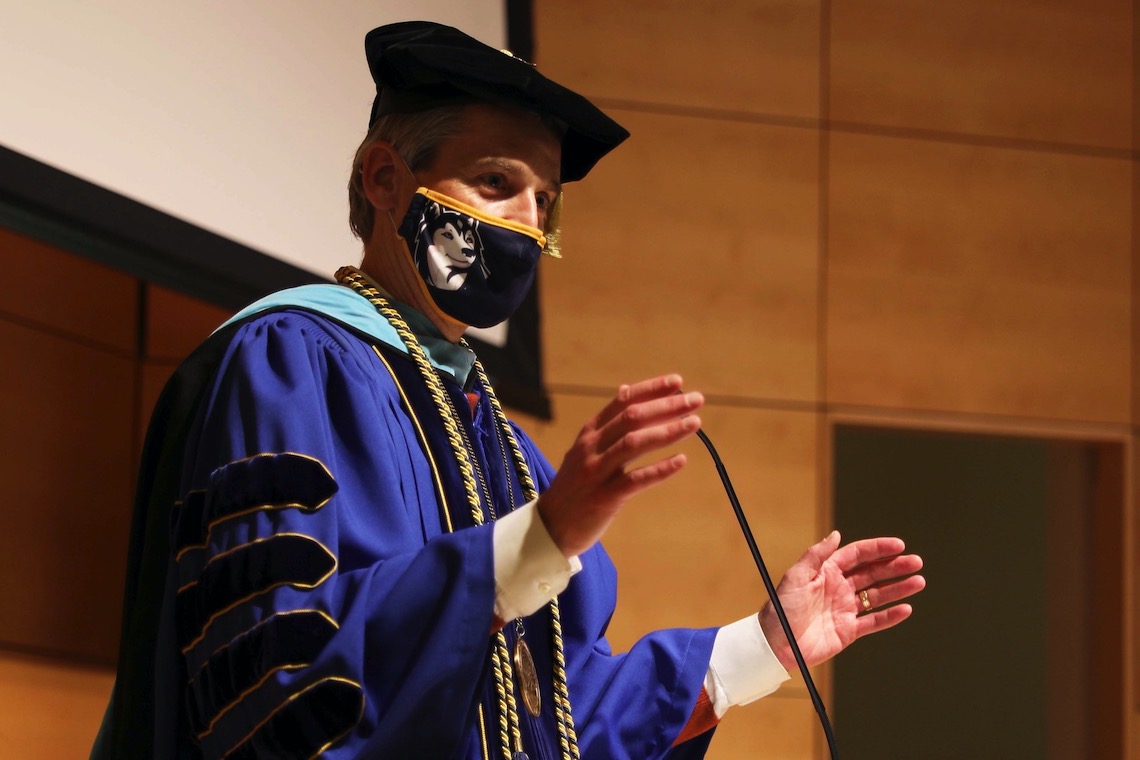
Graduates don’t expect much downtime after leaving the stage. Their services are in high demand between the needs of the ongoing pandemic and Maine’s aging population. Alexander Winn already has a job lined up in the emergency room at Redington-Fairview General Hospital in Skowhegan. “I like the challenge. It really motivates me,” Winn said. “It’s really nice that I can get in and make a difference.”
Being of service to others was a central theme of the keynote speech by Jennifer Riggs, the Chief Nursing Officer of MaineGeneral Health. She told graduates never to underestimate how the smallest kindnesses can make the biggest impact on patients and their families. For delivering that level of care, Riggs hailed nursing as “the most honorable of all professions.”
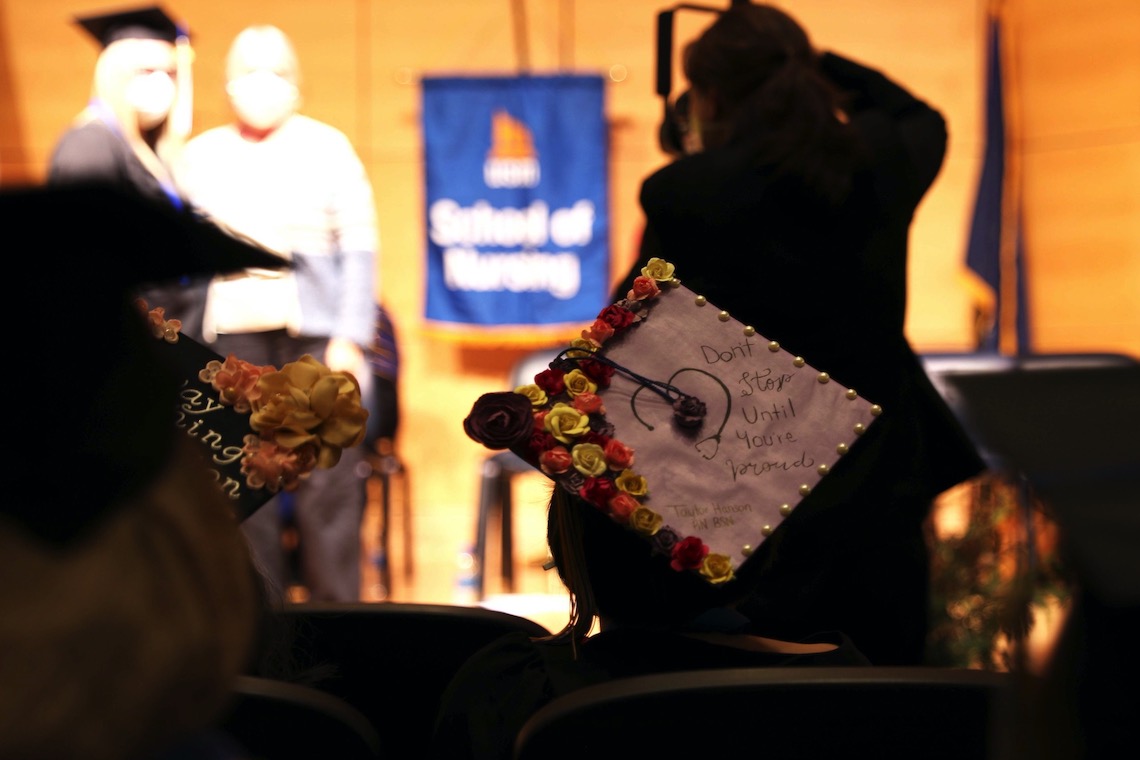
There is one other person, in addition to all of their patients, whose care should be a priority for graduates, according to Dr. Jeremy Qualls, Dean of the College of Science, Technology and Health. “Take time for yourself,” he said and advocated for a good self-care regimen to cope with the long hours and high-stress that come with the job.
On the same day as the convocation, the Maine Center for Disease Control reported that the highly transmissible omicron variant of the COVID-19 virus had been detected in Maine for the first time. The CDC’s accounting of new cases across Maine regularly numbers in the hundreds, and new records continue to be set for the number of people hospitalized with COVID-19 statewide.
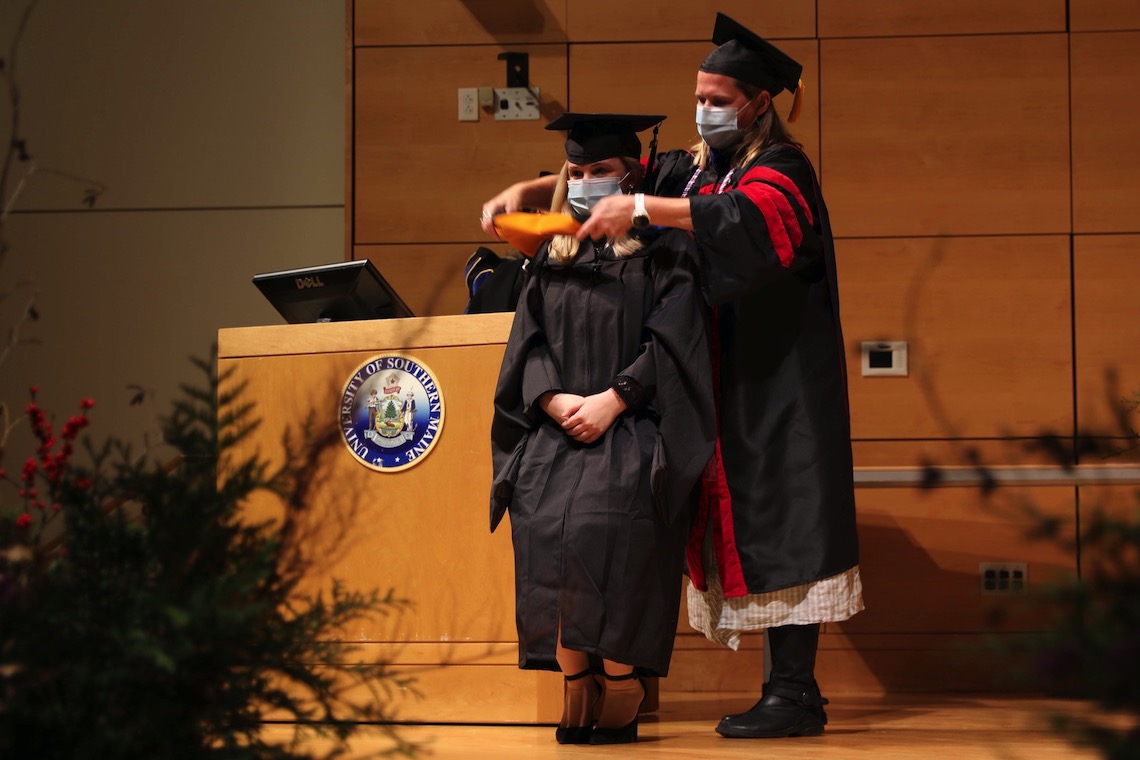
Robyn Trott had first-hand experience on the front lines against COVID-19 having already worked for 14 years as a medical assistant before returning to school get her nursing degree at the age of 38. “I don’t think the medical field is ever going to be the same,” Trott said. “We’re doing amazing things, so it makes it all worth it.”
Petersen used the graduates’ own words to praise them for their choice of career despite knowing the difficult conditions that nurses have endured throughout the pandemic. “Our students said, ‘I want to be like them. Nurses are badass.’”
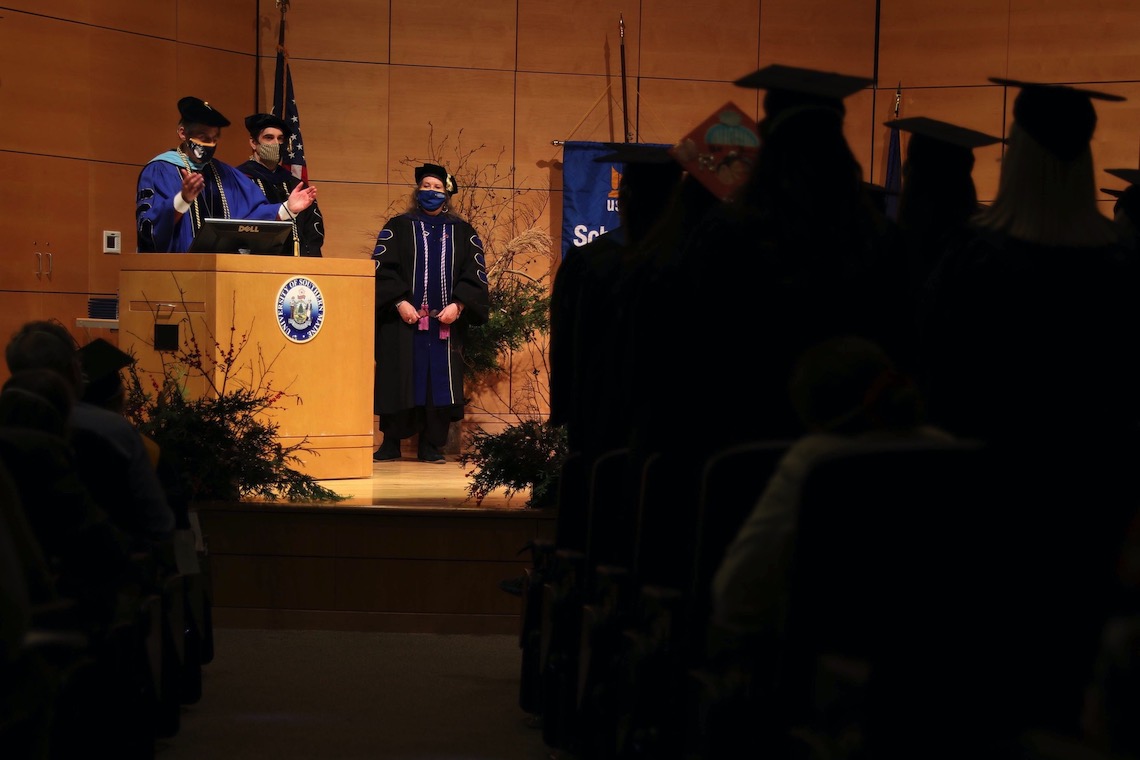
Speaking for herself, Petersen came up with a different description to close out the ceremony. She looked into the faces of the graduates sitting in front of her and told them, “You are truly our Husky Heroes.”

